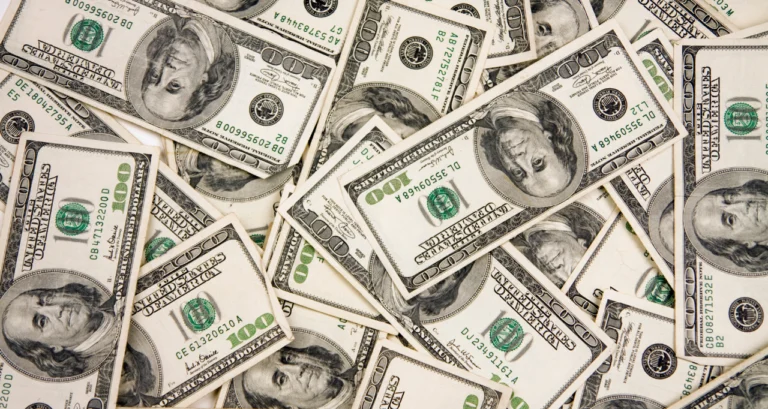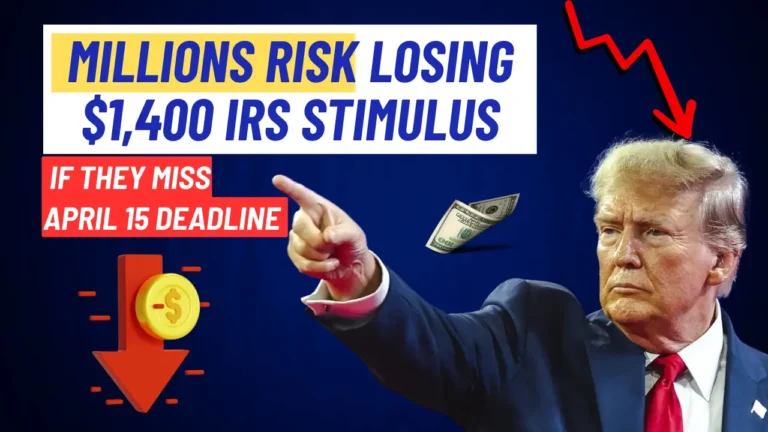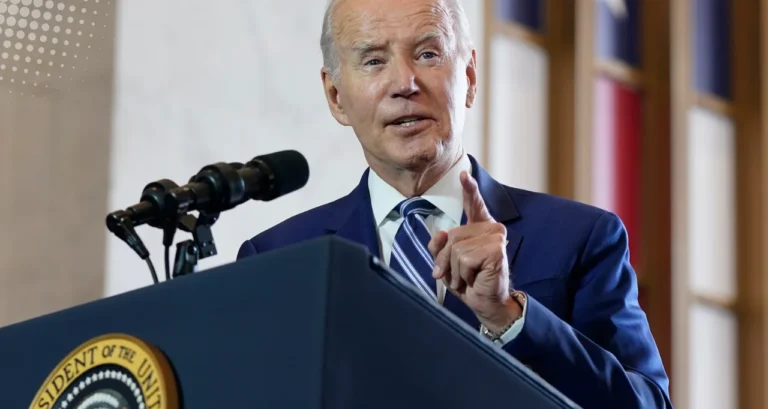Stimulus Check $1,312: Eligibility & Impact
In recent news, discussions about a $1,312 stimulus check have gained traction across the U.S. This amount is being reviewed as part of an initiative to provide financial support to eligible individuals and families who continue to experience economic strain.
What Is the $1,312 Stimulus Check?
The $1,312 stimulus check is proposed as part of an economic support initiative to help Americans dealing with the rising costs of living and lingering effects of the pandemic. As inflation impacts the cost of basic goods, gas, and utilities, many individuals and families are struggling to cover daily expenses. The $1,312 check would serve as a direct relief payment, helping to alleviate some of these financial burdens.
Why Is the $1,312 Check Being Proposed?
Economic experts and government officials are considering this new stimulus to provide essential support for households. Rising inflation, supply chain challenges, and increased housing costs are putting a strain on many Americans. According to recent data, inflation rose by 3.7% from the previous year, impacting household budgets nationwide. The proposed stimulus aims to help families manage these rising expenses.
Who Is Eligible for the $1,312 Stimulus Check?
Determining eligibility for the stimulus check is a crucial step in the approval process. Generally, stimulus eligibility has been based on income levels, tax filing status, and dependency status. Here’s a general look at possible eligibility criteria:
- Income Limits: Individuals earning below a certain threshold, likely around $75,000 for single filers and $150,000 for joint filers, may qualify. This is similar to previous stimulus requirements.
- Tax Filing Status: Individuals who filed taxes for the prior year may have an advantage in automatic disbursement, as they are already on file with the IRS.
- Dependents: Individuals with dependents, such as children under 17, may receive additional funds, similar to previous stimulus checks.
While the above criteria are speculative, they are consistent with previous stimulus check qualifications and could form the basis for this new proposal.
How Will the $1,312 Stimulus Be Distributed?
If approved, the stimulus check could be distributed similarly to previous rounds of economic support. Here are the expected methods of distribution:
- Direct Deposit: The fastest and most efficient way for the IRS to send funds, direct deposits could reach bank accounts within a few weeks of approval.
- Paper Checks: For those who do not have direct deposit, paper checks will be mailed.
- Prepaid Debit Cards: Prepaid debit cards may be issued to individuals without bank accounts for easier access to funds.
How Will the $1,312 Stimulus Check Impact the Economy?
Stimulus checks have historically shown a positive impact on local economies by boosting spending and providing relief to struggling businesses. According to the National Bureau of Economic Research, previous stimulus payments helped increase consumer spending by 12% in the first month of disbursement. This proposal aims to produce a similar effect by encouraging spending in essential areas like groceries, utilities, and transportation.
What Are the Pros and Cons of a New Stimulus Check?
Pros:
- Immediate Relief: Helps families manage increased living expenses and inflation.
- Boosts Local Economies: Increased spending in small businesses and local economies supports economic recovery.
- Mental Health and Stability: Provides reassurance to those facing financial stress, potentially reducing mental health strain.
Cons:
- Potential for Inflation: Some experts argue that additional government spending could further drive up inflation.
- Debt Increase: Adding another stimulus may increase the national debt, which could impact future economic stability.
- Dependency Risk: Some analysts suggest that continued government assistance could delay a full return to self-sustaining economic growth.
What Have Previous Stimulus Checks Accomplished?
Examining past stimulus checks provides insight into the potential effectiveness of the $1,312 check. The first three rounds of checks injected over $800 billion into the economy, helping millions pay bills, rent, and essential expenses. According to the Federal Reserve, each round of payments increased consumer spending, which boosted demand and supported businesses. Previous rounds were instrumental in helping individuals make ends meet during periods of high unemployment and economic uncertainty.
How To Prepare for the $1,312 Stimulus Check
Although the $1,312 check has not yet been finalized, individuals can take steps to ensure they receive their funds promptly if approved:
- Update Tax Filing Information: Ensure your most recent tax return is filed to provide up-to-date financial information.
- Set Up Direct Deposit with the IRS: Direct deposit ensures quicker access to stimulus funds.
- Monitor IRS Announcements: Stay informed by checking IRS updates on potential distribution dates and eligibility guidelines.
When Might the $1,312 Stimulus Be Approved?
Approval for the $1,312 check depends on legislative and economic review processes, which may take several weeks to months. If the proposal gains support, it could be approved in the coming months. Typically, once approved, stimulus payments begin reaching bank accounts within two to three weeks.
Key Points for Final Approval
- Economic Indicators: Congress will review inflation data, unemployment rates, and consumer spending trends.
- Budget Considerations: Officials must determine how the stimulus fits within the federal budget.
- Public Support: High public demand for economic relief can play a role in speeding up the approval process.
What Can You Spend the $1,312 Stimulus On?
While individuals are free to use their stimulus funds as they see fit, many prioritize essential expenses such as:
- Groceries and Household Supplies: High-priority for families managing rising food prices.
- Rent and Utilities: Housing and utility bills are often the first expenses covered with stimulus funds.
- Medical Expenses: Essential healthcare costs can be alleviated with this extra support.
- Debt Repayment: Many individuals use stimulus funds to pay down credit cards or personal loans.
Using the check to cover essential costs can help individuals and families stabilize their finances in challenging economic times.
What Is the Public Response to the $1,312 Stimulus Proposal?
Public opinion on the $1,312 stimulus is mixed but largely positive among individuals struggling with inflation and rising costs. According to a recent survey, 67% of Americans support additional economic relief measures, with many pointing to the current cost of living as a significant challenge. However, some citizens and lawmakers express concerns about potential inflationary effects and the impact on federal debt.
Insights From Economic Experts
Economic analysts are watching this proposal closely. Experts like Professor Robert Shiller of Yale University note that targeted relief can provide temporary stability for families without significantly harming the economy. However, economists caution against excessive government spending, warning that inflation could persist if stimulus measures are not carefully calibrated.
Final Thoughts on the $1,312 Stimulus Check
The proposed $1,312 stimulus check reflects ongoing efforts to support Americans in a challenging economic climate. While the final decision on this check is pending, eligible individuals may soon receive much-needed relief if it is approved. For now, staying informed and preparing personal financial information will ensure readiness for potential disbursement.
FAQs
Is the $1,312 stimulus check approved?
No, it is still under review and has not been finalized.
Who would qualify for the $1,312 check?
Eligibility would likely be similar to previous checks, focusing on income and filing status.
How can I get updates on the $1,312 stimulus?
Check the IRS website and reliable news sources for the latest information.







